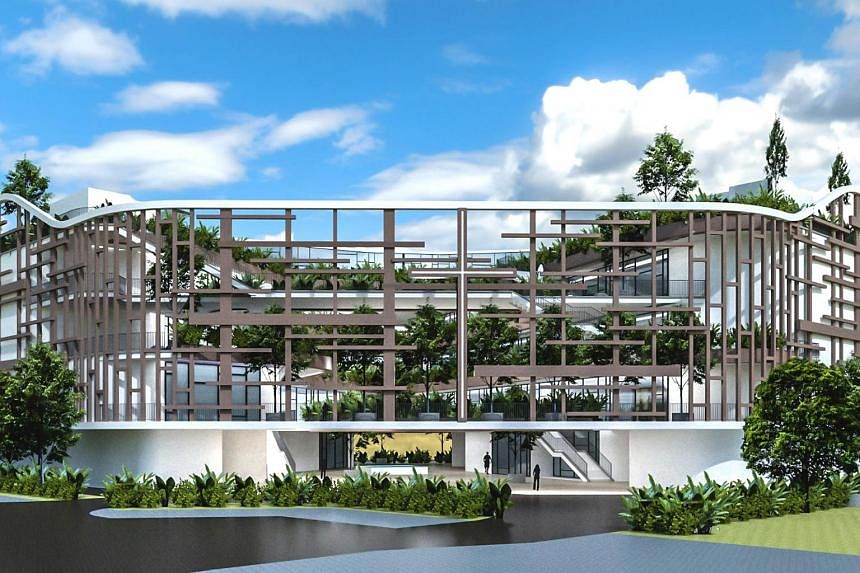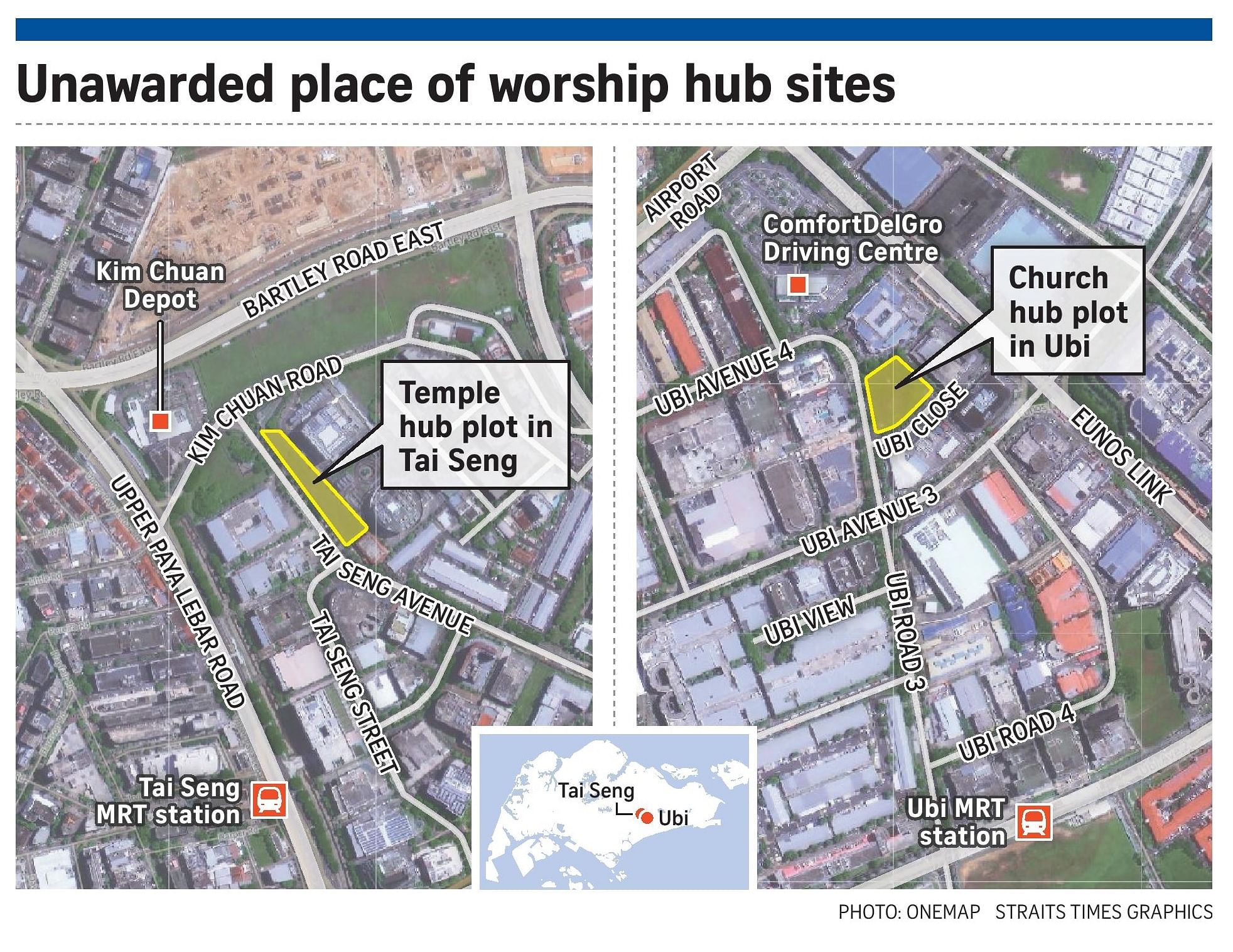- Joined
- Jul 25, 2008
- Messages
- 15,333
- Points
- 113
Launch of religious hubs hits snag as bids fail to win sites

An artist's impression of a proposed church hub in Ubi. Live for Eternity Church placed a bid of about $3 million for the site. PHOTO: LIVE FOR ETERNITY CHURCH

Ng Keng Gene
July12, 2022
SINGAPORE - A government pilot to have multiple religious organisations share premises has hit a snag, after two place of worship hub sites were not awarded as bids received for them were deemed too low.
In 2019, the Government launched two sites with 30-year leases - one for a Chinese temple hub in Tai Seng and another for a church hub in Ubi.
The initiative was meant to optimise land use through religious groups co-locating and sharing facilities within a multi-storey development.
It would also benefit smaller organisations that find standard place of worship land parcels too big for their use. Successful bidders were expected to develop, manage and operate the hub.
Responding to queries, the Ministry of National Development and Singapore Land Authority said the tenders "were ultimately not awarded for both sites as the bids received were significantly below the reserve price".
The authorities did not state what the reserve price was or whether it was communicated to the bidders.
They said the Tai Seng and Ubi sites will continue to be kept for use by the church and Chinese temple community, but did not specify if tenders for religious hubs would still be launched. The uncertainty calls into question the fate of the scheme, four years after it was first announced.
According to religious groups, at least one bid was placed for each of the sites.
Taoist Federation chairman Tan Thiam Lye said he placed a bid of about $1 million for the temple hub site through Lorong Koo Chye Sheng Hong Temple Association, where he is an administrative adviser, honorary secretary and trustee.
Mr Tan said he had hoped the temple hub would benefit smaller temples operating in industrial areas, and had discussed the idea with the authorities for years before it was launched. But he was left disappointed when his bid was rejected.
"Even if the land was given for free, breaking even as a temple hub developer would have been a challenge," he said.
Based on a construction fee of about $17 million for a seven-floor temple in Punggol on a site awarded in October 2019, Mr Tan said he estimated that construction fees for the Tai Seng hub would be about $20 million pre-pandemic.
Assuming the hub had 30 tenants each paying monthly rent of $5,000, it would take more than a decade to recoup the construction fee, he said, adding that not many religious groups can foot a $20 million bill upfront.
"I was prepared to make a loss to support the smaller temples, but a higher bid would not have been financially viable," he said.
Mr Tan added that he placed a relatively low bid as he did not want to set a high market price for the new policy. High prices would likely raise rental rates for tenants and price out small temples, he said.
Meanwhile, Live for Eternity Church placed a bid of about $3 million for the Ubi site.
The church, which has about 100 members and operates in a rented space in Tan Boon Liat Building, had partnered four other churches operating in industrial spaces.
Reverend Vincent Lee, lead pastor of Live for Eternity Church, said it had plans to utilise the space on weekdays for debt counselling services, for students to socialise, and to host family-oriented programmes.
A committee that worked on the bid estimated the hub would cost $50 million.
Discussions with the Housing Board, which manages Government Land Sales sites for places of worship, fell through after the church was unable to provide proof of source of funds by the deadline stipulated by HDB, said Rev Lee.
He said that while he had verbal commitments from donors for the project, getting written proof of funding was difficult as many preferred to put in money only after the land was awarded.

Both Mr Tan and Rev Lee said they did not meet with the authorities to explain their bid amounts, but would have appreciated an opportunity to do so.
However, despite their failed bids, both remain supportive of the concept.
Rev Lee said the hubs remain an exciting prospect for smaller churches, which would be able to combine resources and worship in their own space, without the restrictions that come with renting industrial spaces.
Mr Richie Mui, a member of the church committee that worked on the bid, suggested that for future religious hub tenders, the authorities should consider awarding sites with certain conditions like the ability to show proof of source of funds within a given deadline.
Mr Tan said one way to make place of worship hubs financially viable would be to set them up in disused school compounds, which have the infrastructure needed to support multiple smaller temples.
"The classrooms are already partitioned, and school halls and fields are an ideal venue for festival celebrations," he said.


 Many are better off than you and we know where to draw the line. It's just a statement of facts and you get triggered. Truth hurts huh?
Many are better off than you and we know where to draw the line. It's just a statement of facts and you get triggered. Truth hurts huh?